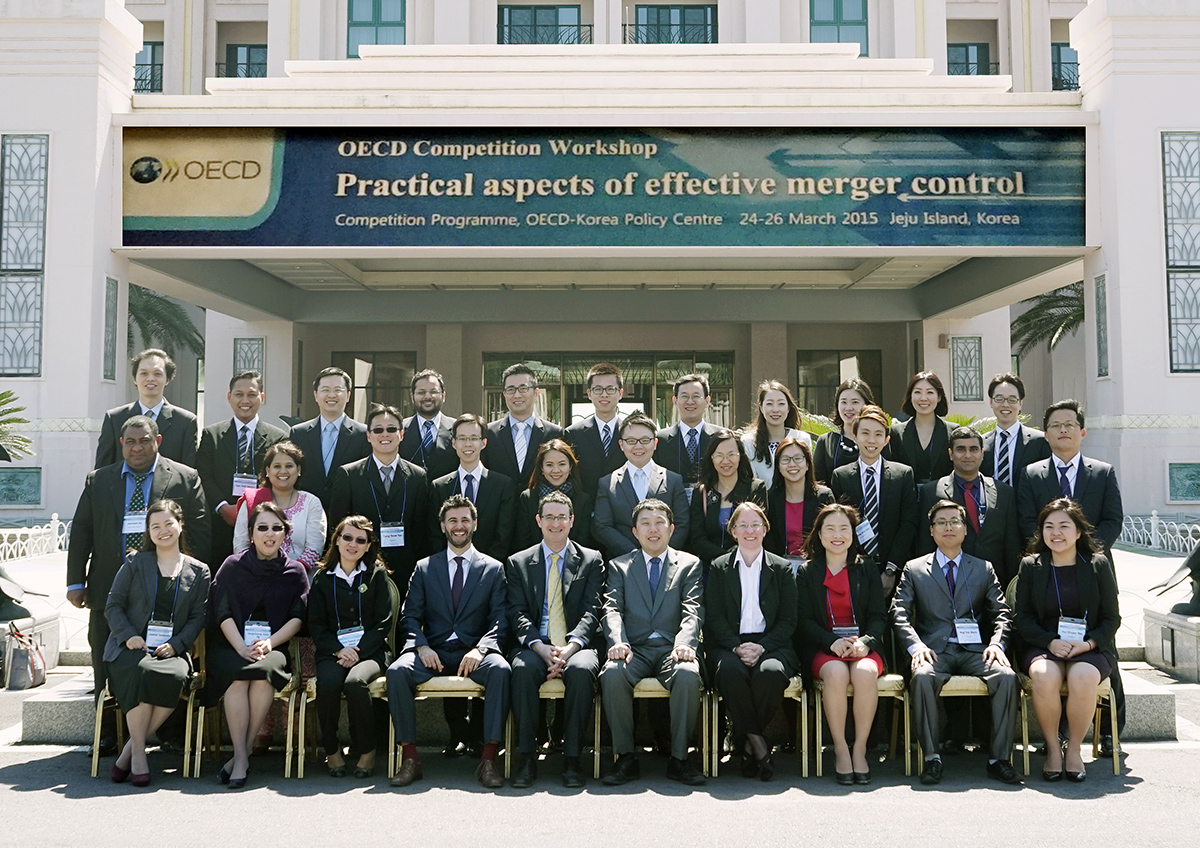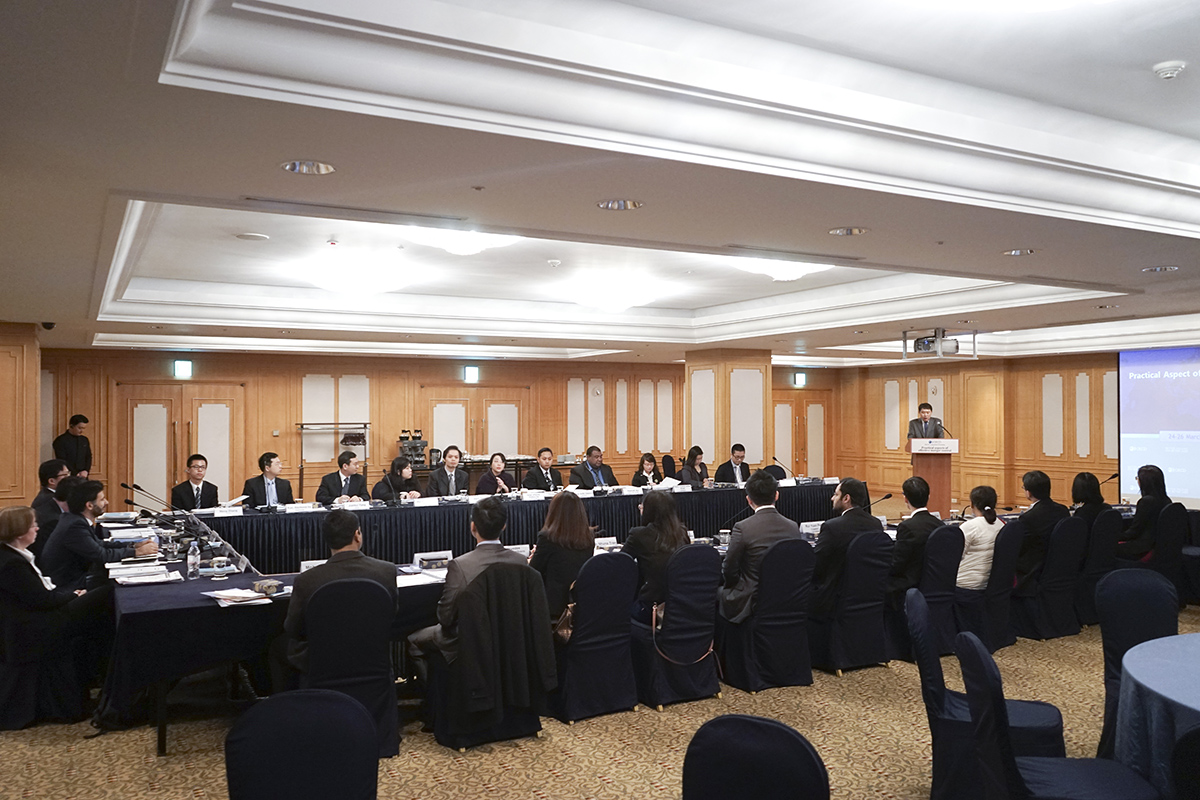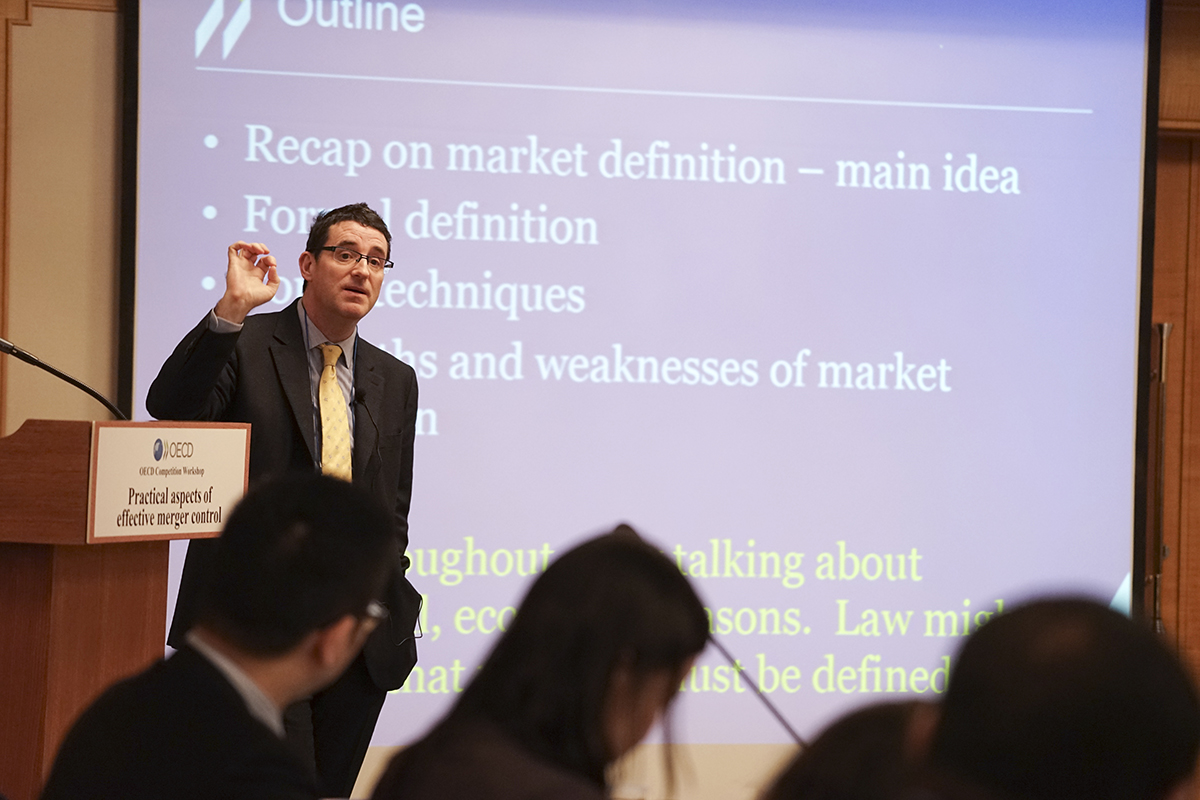Welcoming Message History and Mission Programmes Location Organization Notice
Events - Seminar - Workshop - Forum - Expert Meeting - Capacity-Building
Research Publications Competition Policy Trends Family Database in the Asia-Pacfic Region Links
Workshop 2015-03-24~2015-03-26



The first workshop of 2015 was devoted to merger control, exploring the practical aspects that make for an effective merger control policy.
Many merger control regimes operate under very strict time limits - one of the main distinguishing factors of merger laws in comparison to other areas of competition policy. The main objective of the workshop was therefore to help agencies ensure that these strict deadlines under which they operate are being used to the best possible effect in order to reach a "right" decision based on a cogent and full body of evidence. For this task the workshop counted with five speakers kindly made available by the KFTC, JFTC, US DOJ and the OECD, respectively. Throughout the three days these experts shared their experience - both formally during the dedicated sessions as well as informally - with all participants.
Given the nature of the event it covered both theoretical content and two practical case solving discussions to stimulate active learning of the participants. The latter allowed participants to put into live practice and dialogue the topics discussed during the expert speaker sessions. For these exercises the participants were divided into three groups - each managed by some of our expert speakers for the event.
The introductory presentation to the workshop was made by Mr. Ruben Maximiano of the OECD-Korea Policy Centre. This session offered an overview of the main issues that competition authorities have to deal with under their merger control practice, drawing mainly from the consolidated practice of the member countries of the OECD. This was then followed by a roadmap of all the expert sessions, the issues that would be discussed and how they fit together to ensure that a merger control regime is taking into account all aspects that should be considered.
The workshop continued with two sessions dedicated to the main principles that drive competition assessment in the merger control context - market definition and the possible theories of harm that can be applied. These sessions were both conducted by Mr. John Davies, an economist, Head of the Competition Division of the OECD. Both theory and practical cases were discussed in depth in these two sessions, drawing from Mr. Davies' experience as Chief Economist of the UK Competition Commission. These sessions provided a solid foundation for the remaining part of the workshop, as a thorough understanding of these aspects is crucial for a better targeting of investigation efforts that agencies' may need to undertake in order to uncover facts and data on which to base their decisions.
The final expert session of the first day of the workshop was dedicated to case team planning and was offered to the group by Ms. Tracy Fisher, of the US DOJ. Ms. Fisher shared the wide ranging experience of the DOJ in organising and implementing investigations in the merger arena as well as providing some guidelines and tips to make sure the team that is to examine a merger is ready and focused on what is needed to undertake a successful investigation.
At this point in the day, the participants discussed in three smaller groups a hypothetical case put to them for their appreciation. The fictional case used would be same for the first and second days, but with the group focusing on different aspects of the case. The merger being assessed was based upon a notification of an acquisition by a player active in offering mobile communications services of one of its closest competitors. This first hypothetical case session was focused exclusively on the identification of possible issues of market definition and the theories of harm that could be considered – both horizontal non-coordinated and coordinated theories as well as also vertical foreclosure theories.
The second day saw Ms. Fisher go more into detail regarding the investigative techniques that may be used, both for more simple as well as more complex cases – a session that was very popular with participants as it was very practical in nature. Mr. Woo Chul Jeon of the KFTC then provided in depth analysis of a case study in the retail market Korea focusing exclusively on the issues of market definition and how they were investigated and decided by the KFTC.
The second hypothetical case session discussed in small groups explored how the main issues and questions analysed under the first session could be translated into an effective investigative plan, including assessment of the types of data and information that would need to be obtained, as well as from whom such information could be obtained.
On the last day of the workshop Mr. John Davies explored the economic tools that are available in the toolbox of the competition agencies when analysing mergers in their jurisdictions, looking at the advantages and disadvantages of the main tools as well as the types of economic data that are needed for their successful application. This was complemented by Mr. Hashimoto of the JFTC that brought to life the application as well as some of the limitations of certain of the economic tools discussed by Mr. Davies by discussing in some depth two recent cases of the JFTC.
Two case studies were then presented: one by MOFCOM, of China, regarding market definition issues in the tourism sector, raising interesting issues namely as regards the possible impact of the internet in market definition; another case was presented by the Competition Commission of Singapore on the failing firm defence and the evidentiary burden that is required to bring such a case - which is exceptional in application, in Singapore as in many other jurisdictions.
Finally, the afternoon saw the discussion of the importance of procedural fairness and of transparency in making better, more informed and robust decisions. The following session drew upon the experience of the OECD member countries to look at the practical aspects of choosing appropriate remedies to mergers that raise competition concerns. Both of these sessions were run by Mr. Maximiano, of the OECD. Indonesia's KPPU then presented a merger case it had recently examined in the telecoms sector and where the Indonesian competition agency applied remedies for the first time.
Overall, this was a workshop with a lively involvement and the fruitful sharing of experiences of the participants during the sessions as well as during the more informal settings provided during the three days the group was together - showing the relevance of the topics under discussion for competition agencies when analysing mergers.